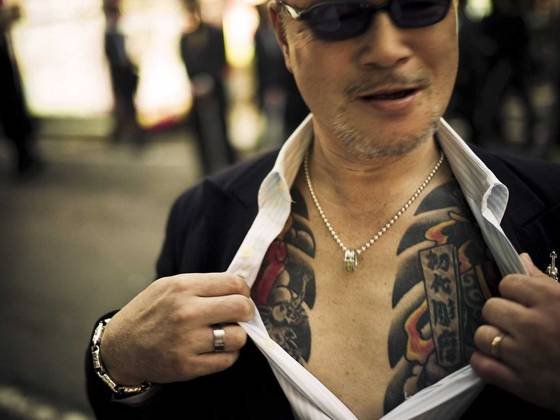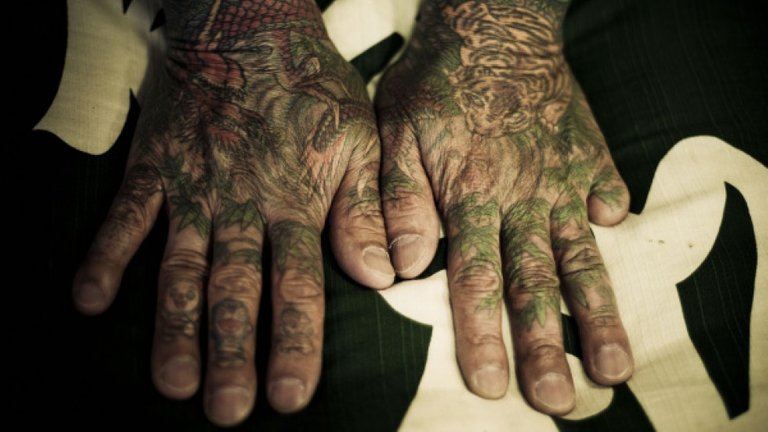
Tattoos, politics, money and rituals. The powerful secrets of the Japanese "Gomorrah", considered one of the richest criminal organizations in the world.
What Makes More Impressive About Jakuzan, the Japanese Mafia, is that many members and members are circulating freely. This criminal group, the most fearsome and the richest in the world, is unique: it invests in outlawing activities as well and legitimate ones.
The origin of Jakus is a little clear. According to the traditions it was formed by the group of Ronin, the unassuming samurai, who offered protection to the villages by the bandits. But it is said to have been created in the 1700s by the union of gambling players and ambulance salesmen. The honor code that Jakuza had, which he spent in modern times, had three main points:
1 - Do not touch the other's wife
2 - Do not spread the secrets of the organization
3 - Be loyal to your boss. (This principle was taken from the samurai code)
According to the writer Atsushi Mizoguchi, the name comes from the combination of three words: ya ("eight"), where ("nine") and za ("three"), the result of the loss in a game of cards called Hanafuda, controlled gambling by the Japanese mafia three centuries ago. (For Reader's Pleasure - Here's What's Significant Number 39 in Japan)
HOW TO KNOW A JAKUZAS MEMBER?
As a sign of God's loyalty, a Yakuza can even pinch the finger, drawing blood, a ritual called Yubitsume. So hands are an indicator. Yakuza mafiosi are also known for complex tattoos across the body. This is one reason why tattoos are stigmatized in Japan. In recent years Yakuza has been "normalized" to avoid police attention.
Tattoo.
The tattoo was initially a form of punishment used to mark the skin of criminals, with black stripes in their arms. Those of Yakuza members are often under the skin using handmade and non-electric tools with bamboo or sharp steel needles. The procedure is very expensive, painful, and it may take years to complete.
WHAT DOES JAKUZA EXCELLENT?
Extortion, money laundering, prostitution, gambling, drugs and weapons trafficking, as well as financial crimes. Then they also have so-called legal activities: Film Agencies, Foreign Exchange Rates, etc. Yakuza, according to some observers, will provide the manpower of the Japanese nuclear industry and will also engage in efforts to help people affected by natural disasters such as earthquakes and tsunamis.
FAMILIES.
Yamaguchi-gumi is the largest Yakuza family in Japan, and was established in Kobe in 1915 as a staffing association on the dock. In 1943 there were only 25 members, and now around 30,000 in the whole world. The Yamaguchi family operates internationally and is sanctioned by the US government to crack down on organized crime. According to the Fortune magazine, this family has a fortune of $ 80 billion, making it one of the richest criminal organizations in the world.

STRUCTURE OF YAKUZAS POWER.
It is a typical pyramid structure, with leaders at the top and the power spread among the base assistants, chosen with loyalty and conviction.
Sexism.
The yakuza is almost completely populated by males, and there are very few women involved in the group. Yakuza women are called "Ane-san", meaning a sister. It is said that in total Yakuza uses 100,000 involved.
READERS.
In 2013, Yakuza also published a magazine: Yamaguchi-gumi Shinpo. Among her sites were poetry, fishing articles, and invitations to readers in good works. The magazine was distributed among members in an effort to counter the bad publicity surrounding the organization after several arrests.
KATANA.
The traditional Japanese sword originally used by the samurai, still plays an important role in the Yakuza. A large number of people, including some prominent politicians and businessmen, have been killed by Yakuza with the sword. In 1994, for example, Juntaro Suzuki, Vice President of Fuji, was killed with his catanal, after he refused to pay a bribe.
JAKUZA AND AMERICA
In recent years, they have increased Jakuza activities in the United States. Most are in Hauai, the land border between the US and Japan. But suspicious activities have also been reported in California, Nevada and New York, where this year Yakuza has already won the role of "Satan."

